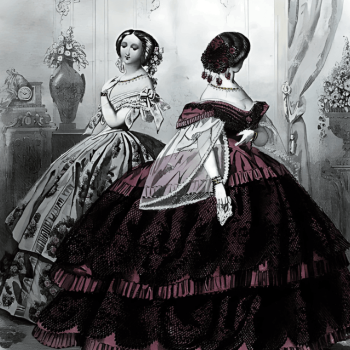"Context is everything," we hear. This response to Brent Landau's Revelation of the Magi comes from a multiple-context kind of day in which I steeped in his text and translation. I thought it might offer a nice variety of lenses into the relevance of this volume for Christian faith as well as its scholarly merit (a phrase that has multiple connotations, whether scholars fess up to it or not). The RevMagi, as Landau dubs it, accompanied me on one day's journey begun in a "spiritual classics," adult-ed class in a Midwestern-Protestant congregation, then moved to a relatively-fast-food pizzeria, to an airport, a train, a taxi, then to an East-Coast theological seminary for a business consultation. Each context brings relief to different aspects of the work.
Overall, I was delightfully surprised with this little volume. As a scholar in the academic discipline of Christian spirituality, I confess I read the title with a little hesitation and dread. The story of the Magi, as Landau himself observes, is not a hotbed of critical theological scholarship. I've not spent a lot of time there myself, except within the ever-present Christmas carol and the occasional fictional exploration of its narrative. (The Other Side December 1982, pp. 28-30 is one of my favorites. See also The Secret of Gifts: A Story for Old & Young, by Paul Flucke.) In the text's defense and for context of my perspective, I've not had reason to spend much time in Landau's work or the Magi story. I'm not a biblical scholar, nor does the method of my discipline pursue analytical discourse in the fashion that scriptural-textual scholars do. The scholarly merit of this work, therefore, comes through a non-specialist's assessment, were we to be precise.
Were I to be more helpful to the vast majority of readers, however, I would say that the scholarship meets a majority of the basic criteria we look for. Landau's completed dissertation from Harvard moved into the scholarly article ‘summary' published by a peer-reviewed, academic journal Apocrypha. Landau teaches at an accredited university and has begun to establish himself through his teaching and research. He landed a contract with an extremely well known publisher and within the early years of his career, he has published his first book. Landau's credentials for contribution are well within scholarly expectations.
The merit and relevance of the work varied in my assessment, depending upon the context imagined (or in this case, experienced). For those who were in the adult-ed class engaging a classical sermon of Meister Eckhart, The Revelation of the Magi would be a fascination and intriguing read. The narrative fits well within the common sense of ‘spiritual life as a journey' and as Landau observes, everyone seems to know the story of the Three Wise Men. It will satisfy many who yearn for a textual source to engage in more literal fashion.
The difficulty here is that the near-mythical character of the narrative may mislead the more literally-minded Christian. Many look to texts to prove or disprove beliefs of their fellow-believers, and fewer than we would like actually have the skills or suppleness of mind to assess an ancient text critically. Congregations have many different missions, and rarely is there one whose sole purpose is such an engagement of an ancient text. Landau's offered glimpses of critical-textual analysis may be a good antidote to some of this, though perhaps bit discomforting to many as well. Personally, I think that's one of the text's greatest features: we get to see inside a scriptural-scholar's argument for locating, dating, and arguing for an author of an ancient text. I suspect few would make the leap from this text to assessing canonical scripture in such fashion, however. The ‘remove' of this text, therefore, makes learning in that way unlikely for congregational contexts.
The pizzeria offers a public, unchurched/uninstitutional domain to think of the relevance of the RevMagi. The waiter was fascinated by the title and recognized the story (of course). I suspect the text's relevance could be heightened here. The exotic-ness of the story and ideas, the rituals and prophecies, even the familiar language (Christ, Mysteries, etc.) will be a draw. But a draw to what? I found myself asking. A document without communal context? A fanciful story that makes the reality of Christ fanciful and further mythologized? The airport, train, and taxi contexts also heightened this sense of dislocation for engaging The Revelation of the Magi. Without communal context for discourse -- whether in the academy or in broader contexts -- how does one get any traction for bringing this story into one's own spiritual understandings? I observed a Turkish family at one point, however, and realized that the text might be an interesting connector for those who consider each other strangers. The text brings associations with medieval Europe, Egypt, a monastery in Turkey, and the Vatican Library in Rome all amidst a highly popular story.




